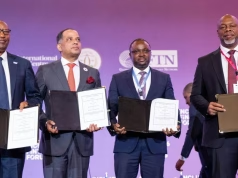Nigeria’s recent economic reforms have earned the country a positive outlook on its debt rating from Fitch Ratings. The credit rating agency has revised the outlook from “stable” to “positive,” highlighting the progress made under President Bola Tinubu’s administration. This positive turn comes just six months after Fitch acknowledged the faster-than-anticipated pace of reform implementation since Tinubu took office in May 2023.
Fitch Commends Reforms, Highlights Continued Challenges
Fitch’s statement commends the government’s efforts to restore macroeconomic stability and strengthen policy coherence. These reforms aim to address previous concerns raised by Fitch, including weak governance, security issues, high inflation, and reliance on oil revenue. The agency also expressed initial optimism regarding President Tinubu’s commitment to market-friendly policies, contrasting them with the “unorthodox” approaches of prior administrations that discouraged investment.
Tinubu’s Reforms Show Early Promise
President Tinubu’s first year has seen the implementation of key policies, such as reducing fuel and electricity subsidies and allowing greater flexibility in the naira’s exchange rate. The resulting depreciation of the naira, coupled with subsidy savings, has boosted government revenue and improved the fiscal outlook. These measures have garnered positive attention from investors, with the Nigerian stock market reaching record highs and yields on dollar bonds declining.
Focus on Tax Revenue and Debt Management
The Nigerian government aims to increase its tax-to-GDP ratio from the current 10% (one of the lowest globally) to 18%. Additionally, it seeks to significantly reduce the portion of revenue used for debt servicing, from a staggering 98% in 2023 to a more manageable 45% in 2024. However, efforts to control the debt burden are complicated by rising interest rates as the Central Bank battles high inflation, currently at a 28-year peak.
Nigeria’s Debt Situation: A Balancing Act
Nigeria’s public debt has grown considerably, rising more than sevenfold since 2015 to reach 108 trillion naira by December 2023. Nearly 40% of this debt is owed to external creditors. The government must effectively manage these challenges while maintaining economic growth and implementing reforms to create a more sustainable financial future.

























